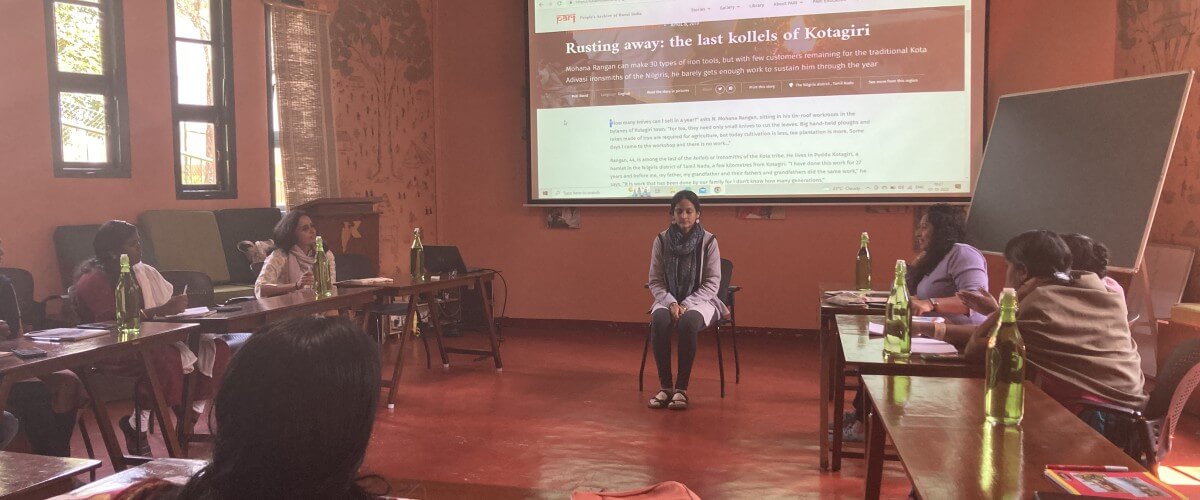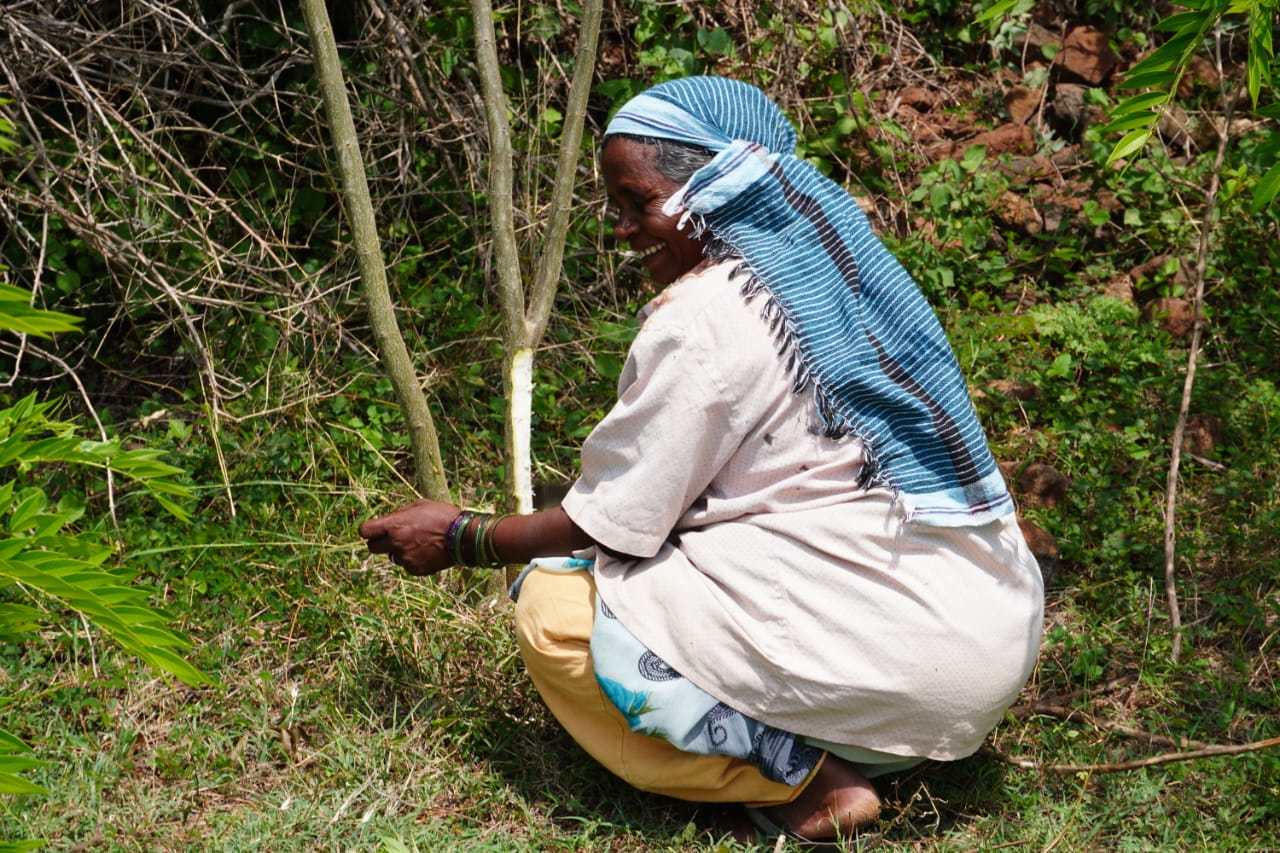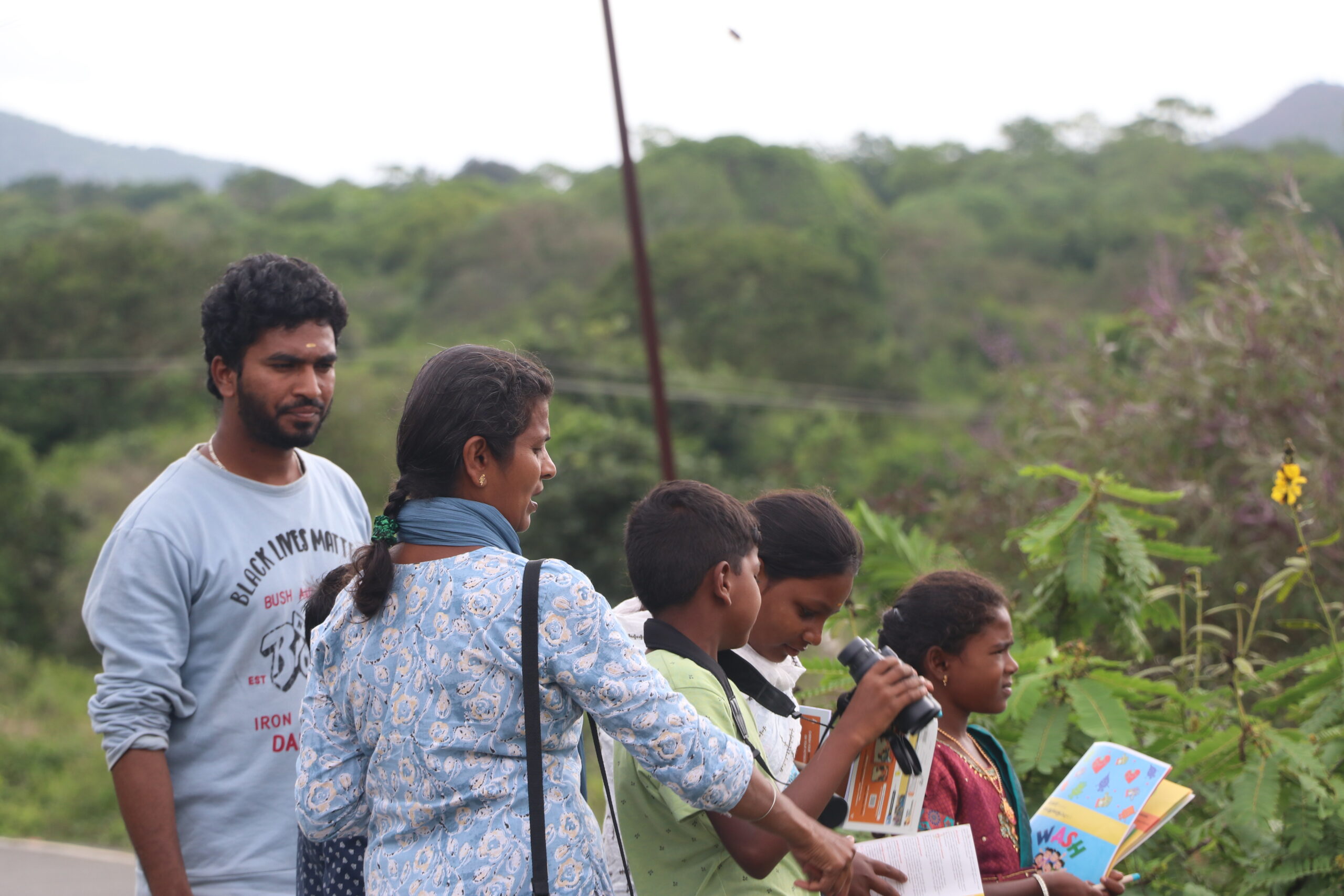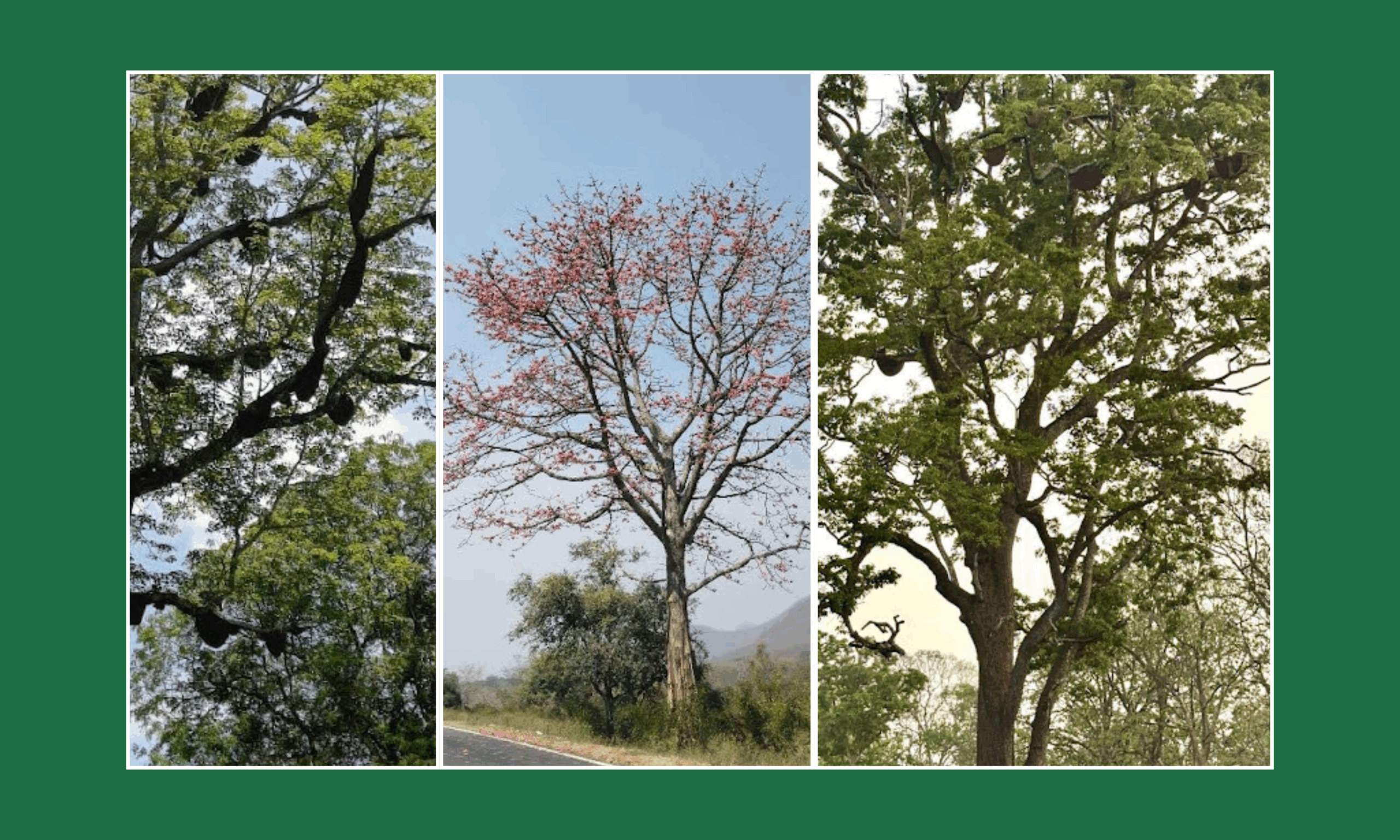October 7, 2022
By Bhavya George & Arathi Menon
Programme Coordinator – Climate Change
Lead Trainer, Climate Stories & Independent Environmental Journalist
Keystone Foundation, in collaboration with Earth Journalism Network (EJN), has been organising Climate Stories, a short-term environment journalism programme to build capacity among the local and indigenous youth of the Nilgiri Biosphere Reserve.
Individuals from Kotagiri, Wayanad and Nilambur are onboarded as fellows and given training on ethical, straightforward and effective reporting, so that they can go on to tell the many untold stories of their community. Themes of their stories revolve largely around climate change impacts, human-wildlife interactions, changes they observe in the forest ecosystem, farming, their relationship with rivers and lived experiences in natural disasters.
On October 7, Priti David, a journalist and editor with the People’s Archive of Rural India (PARI) Network, who works with educators to bring rural issues into the classroom and curriculum, joined us to host one such workshop.
In a crucial time when the impacts of the climate crisis are so vast, varied and changing every day, it is important to hear from those that are most affected (while making the least impact), which are largely forest and rural communities in the global South.
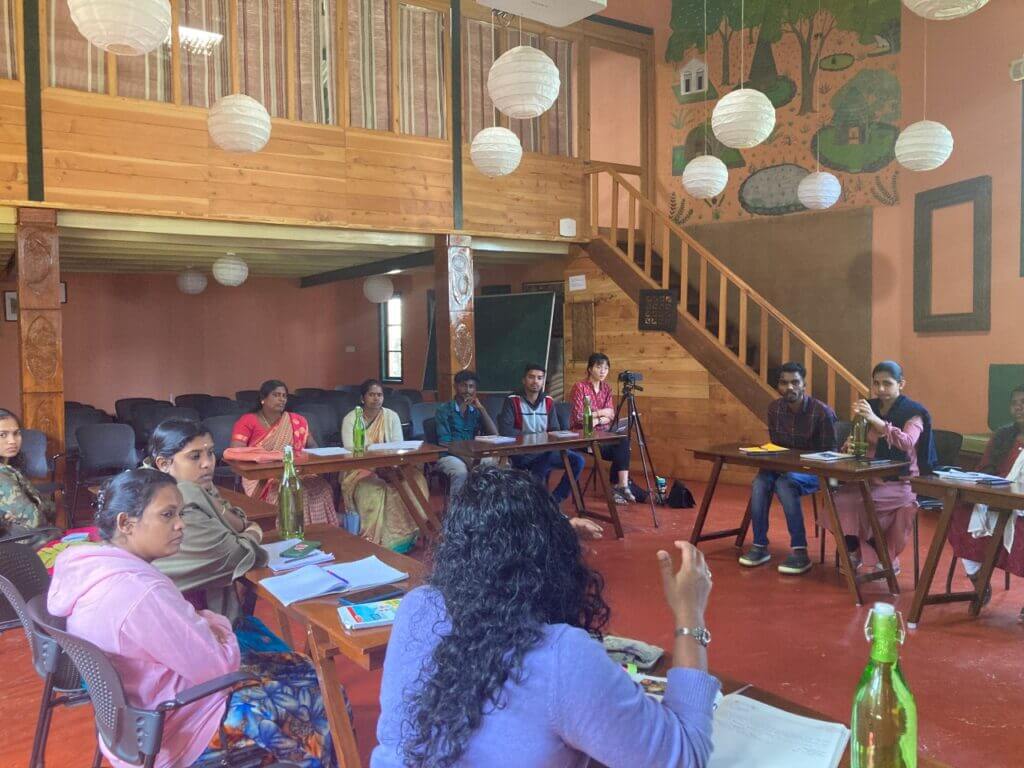
During the session, Priti addressed several critical aspects of journalism with trainees from Wayanad, Nilambur and Kotagiri, areas which are vulnerable natural spaces highly prone to the impacts of the climate crisis, hosting rich (and threatened) biodiversity and indigenous tribes.
With Arathi translating her inputs to Malayalam and Bhavya translating to Tamil, Priti dove into the various elements of storytelling that need to be considered before one even begins research for a story: the history of a community, its geography and culture, economics, and social context and issues that are particular to the region. She also stressed on the importance of receiving consent from the subject of one’s story before proceeding. While speaking to the subjects of one’s story, Priti explains how one must put the subject at ease and build trust through ‘conversations’ rather than ‘interviews’.
Using her own reporting with PARI as brilliant examples to solidify the learnings she imparted, Priti left a lasting impression on the fellows. After a discussion of the theory, the fellows shared the photo stories they documented with Priti, who helped them identify elements that could enhance their work. Once reviewed, PARI Network will be publishing some of their stories.

